As the automotive industry advances and consumer expectations rise, car wash businesses must adapt to remain competitive. Enter the fully automatic car wash—a technology-driven solution designed to deliver fast, consistent, and safe cleaning with minimal manual labor. From in-bay automatic car washes to tunnel car wash systems, these machines are setting a new benchmark for performance and profitability.
In this comprehensive guide, we explore how fully automatic car wash systems work, their core technologies, operational advantages, and how to choose the right system for your business.

A fully automatic car wash is a self-contained washing system that cleans vehicles using a combination of mechanical brushes or high-pressure water jets, detergents, and dryers—all without manual intervention. These systems are commonly installed at gas stations, convenience stores, or dedicated wash centers and can operate 24/7 with minimal supervision.
There are two primary types of fully automatic car wash systems:
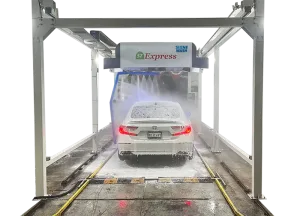
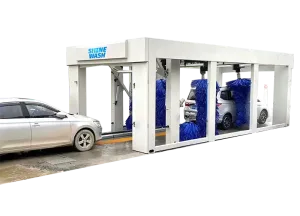
Each type offers distinct advantages depending on your site location, customer volume, and business goals.
In in-bay car wash systems, the car remains stationary while the wash equipment moves around it. This process typically takes 5–10 minutes per wash cycle and includes steps like pre-soaking, brushing or spraying, rinsing, and drying.
Best for:
Tunnel systems use a conveyor belt to move vehicles through a sequence of wash stages, including pre-soak, high-pressure rinsing, foaming, wheel cleaning, and drying. These systems can process over 120 cars per hour, offering a high-capacity solution for busy urban or suburban areas.
Best for:
Fully automatic car wash systems use two primary cleaning methods:
|
Friction Systems |
Touchless Technology |
|
Soft cloth brushes physically scrub the car |
High-pressure jets combined with chemical agents |
|
Effective for dirt, mud, and insect buildup |
No physical contact prevents micro-scratches |
|
Requires regular brush maintenance |
Ideal for delicate finishes and ceramic coatings |
Modern car wash systems often integrate both friction and touchless methods into a programmable cycle. This allows operators to tailor wash cycles based on vehicle type or customer preference—balancing cleaning effectiveness and surface safety.
Advanced sensors—such as IP69K-rated models from Pepperl+Fuchs—scan vehicle size, shape, and position. This data is used to adjust brush angle, water pressure, and chemical dosage in real time, protecting delicate surfaces.
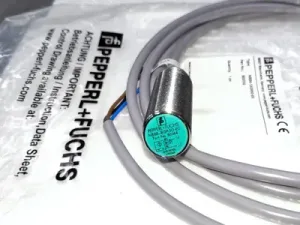
Unlike traditional nylon bristles, EVA (Ethylene Vinyl Acetate) foam brushes are gentle, durable, and self-cleaning. They maintain their shape over time and are less likely to hold debris that could scratch paint.

Eco-conscious systems recycle up to 85% of used water through multi-stage filtration. This not only reduces environmental impact but also significantly lowers water bills.
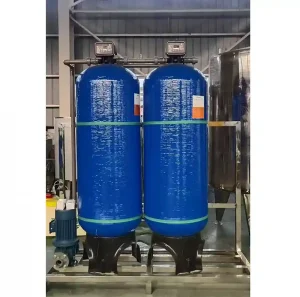
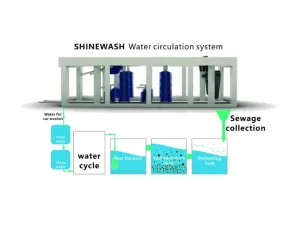
Fully automatic car washes use PLC-controlled dosing systems to ensure the precise amount of soap, wax, and cleaning agents are used. This reduces chemical waste and ensures consistent wash quality.
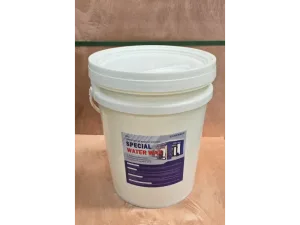
Integrated dryers using 5.5KW–11KW motors deliver quick and effective drying in seconds. Some systems use heat recovery technology to reduce energy consumption.
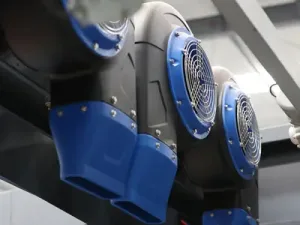
Industrial-grade control units—like those from Siemens—enable operators to monitor performance, track maintenance needs, and make remote updates through user-friendly dashboards.
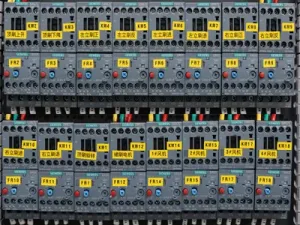
Modern car washes now support IC cards, QR codes, mobile wallets, and app-based payments. Loyalty systems tied to license plate recognition (LPR) offer personalized services and customer rewards.
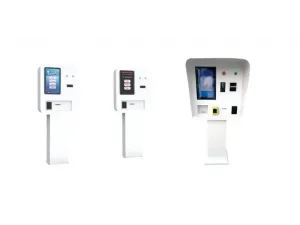
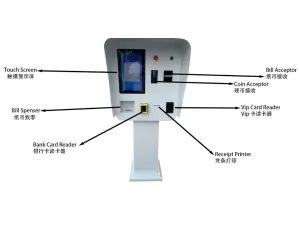
Businesses switching to fully automatic car wash systems enjoy:
Tunnel car wash systems can process 120–180 cars/hour, while in-bay systems complete washes in under 10 minutes. This means higher volume and shorter customer wait times.
Many car wash systems require only one operator or run completely unmanned with remote monitoring, cutting labor costs by 60–80%.
Automation eliminates human error and guarantees the same quality with every wash, which improves customer satisfaction and retention.
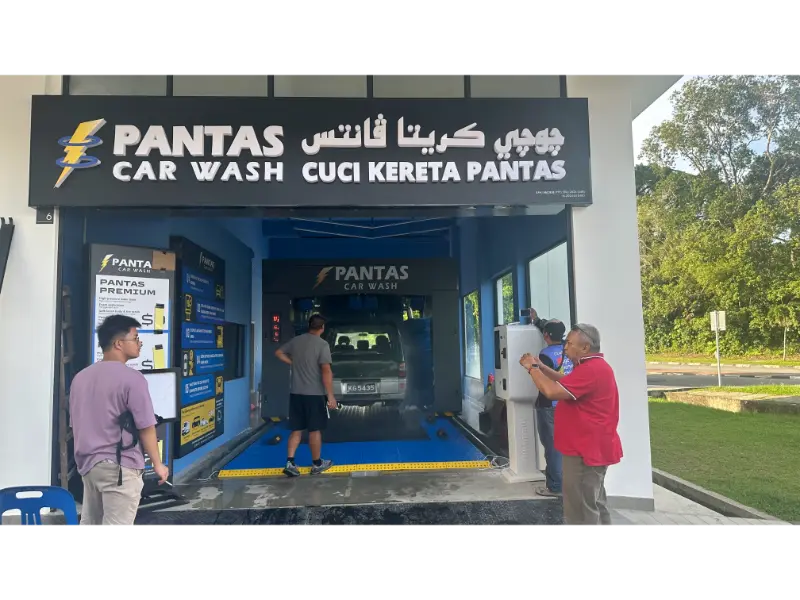
Increased throughput, upsell features (wax, undercarriage cleaning, etc.), and 24/7 operation can boost monthly revenue by 300% compared to manual washes.
Thanks to modular design and remote diagnostics, maintenance is simplified. Components can be replaced quickly without full system shutdowns.
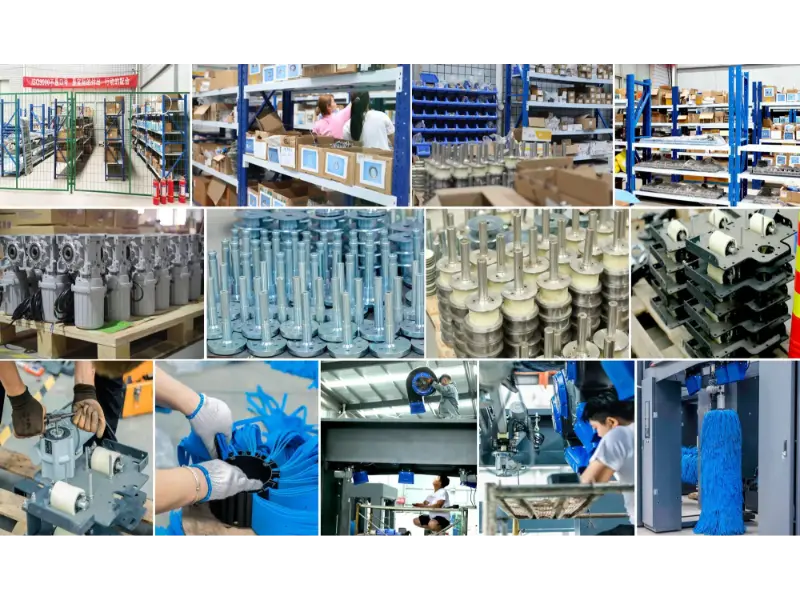
A Shinewash tunnel car wash system in Kuala Lumpur handles over 300 cars/day, delivering consistent results with sub-2-minute wash cycles and high customer satisfaction.
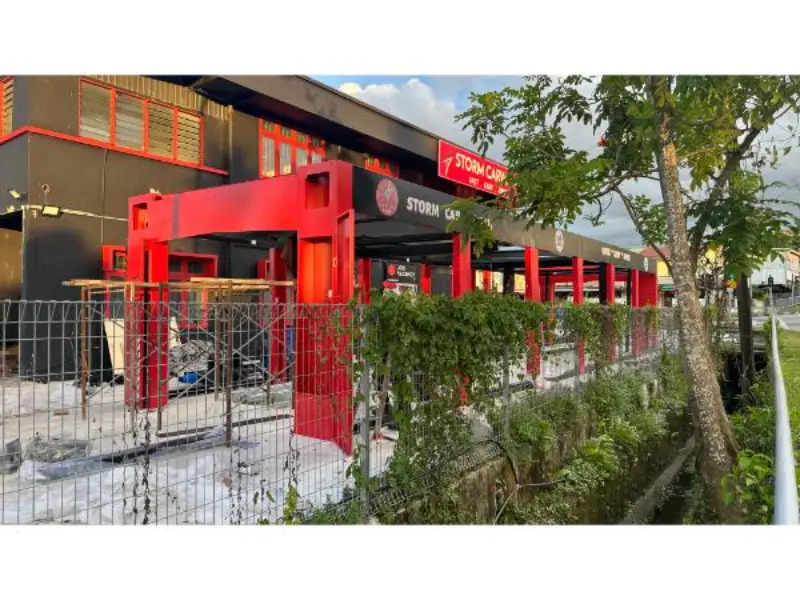
An operator reports full ROI recovery in 18 months after implementing a 24/7 unmanned tunnel car wash system with remote monitoring and cashless payment.
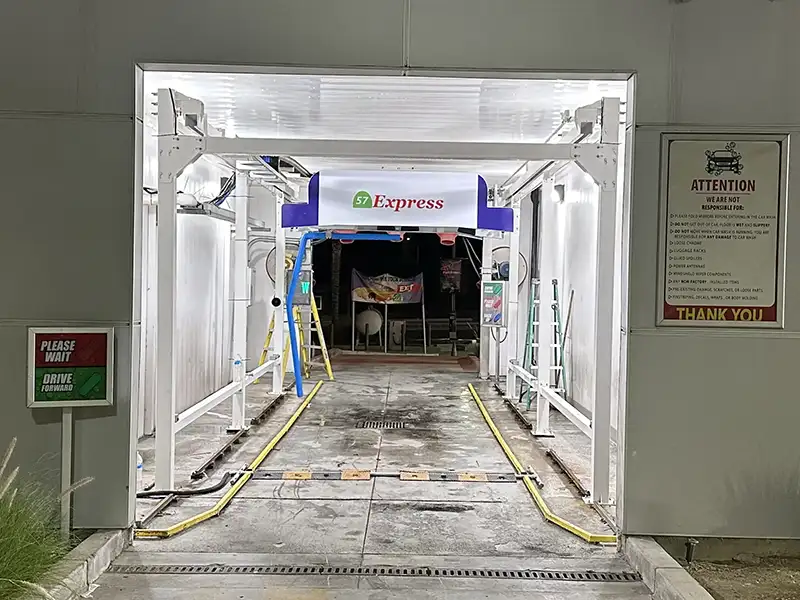
A Zhengzhou-based operator reports a 40% increase in daily throughput after replacing semi-automatic systems with fully automatic, touchless technology.
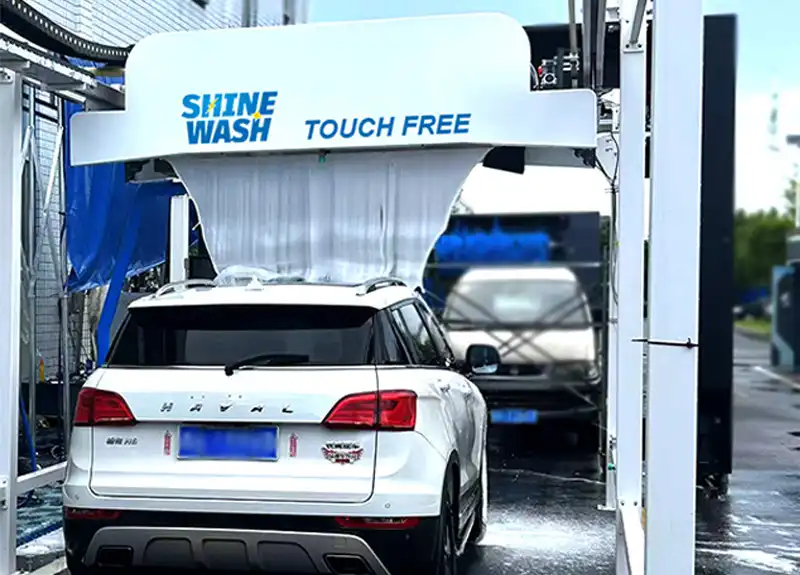
Ensure the supplier offers:
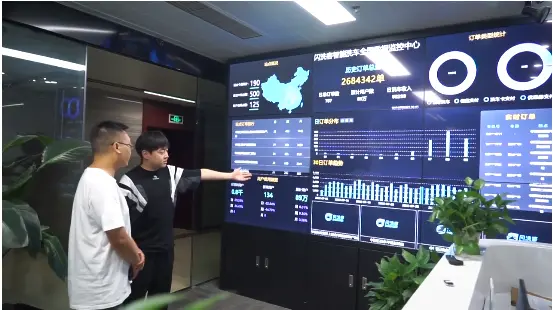
Even the best fully automatic car wash won’t succeed without strong marketing. Here’s how to attract and keep customers:
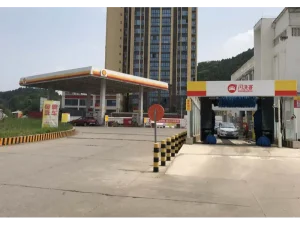
Modern fully automatic car wash systems are designed not only for performance but also for sustainability. To meet increasing environmental regulations and customer expectations, many systems now incorporate eco-friendly features that align with EPA and ISO standards. Biodegradable detergents and waxes are used to ensure safety for both users and the environment. Advanced water recycling technology allows operators to treat and reuse up to 85% of the water used in each cycle, significantly reducing waste and utility costs.
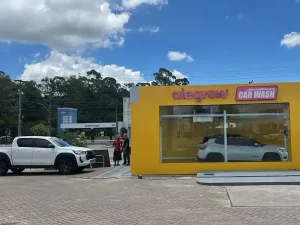
In addition, energy-efficient components such as heat-exchange dryers and low-consumption pumps help lower the carbon footprint of operations. With automated chemical dosing systems, businesses can precisely manage the quantity of cleaning agents, avoiding excess use while maintaining wash quality. These innovations make it possible for car wash operators to stay compliant with environmental laws and contribute to long-term resource conservation.
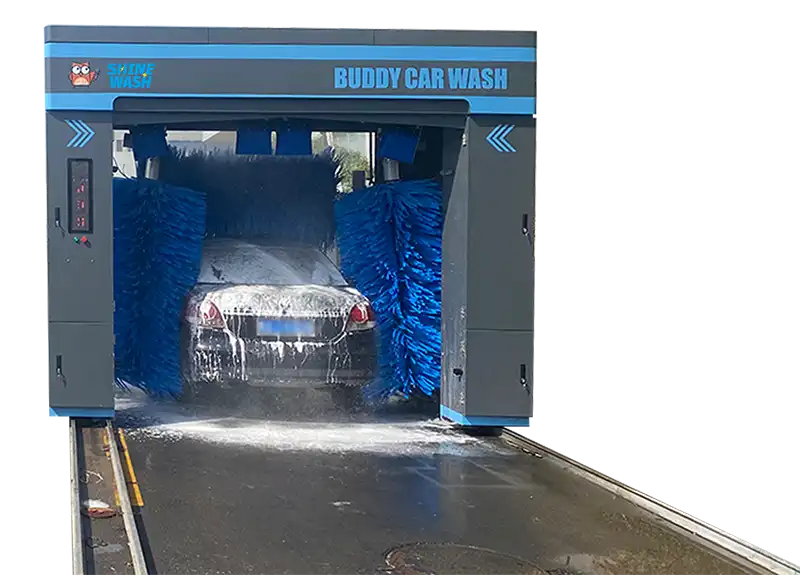
The evolution of car wash technology shows no signs of slowing down. Today’s fully automatic car wash systems are increasingly equipped with smart features designed to future-proof your investment. AI-powered soil detection is one such innovation, allowing systems to scan vehicle surfaces and adjust cleaning intensity and chemical ratios accordingly. License Plate Recognition (LPR) technology is also gaining traction, enabling automatic customer identification, personalized service, and integration with loyalty programs.
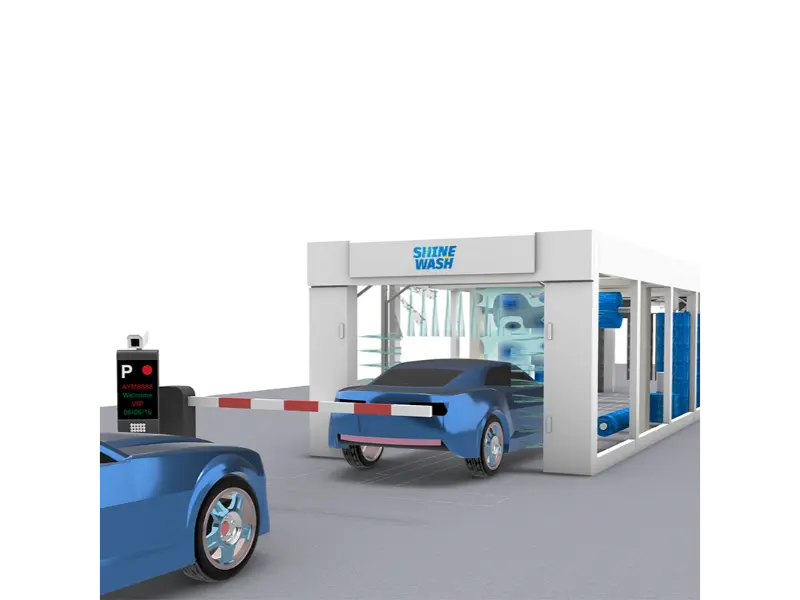
On the chemical side, dynamic blending technology allows formulations to be customized based on weather, vehicle type, or customer preference. Additionally, mobile payment systems and app integrations have streamlined the customer experience, reducing transaction times by up to 70%. Self-service kiosks are also becoming popular, giving customers the ability to select and customize wash packages on-site. These advancements not only enhance operational efficiency but also improve customer retention and overall satisfaction.
The car wash industry is moving quickly toward automation—and for good reason. A fully automatic car wash offers unmatched efficiency, lower operating costs, higher revenue potential, and a better experience for customers.
Whether you’re launching a new site or upgrading an existing one, choosing the right technology partner is key. Look for a provider with proven equipment, comprehensive training, responsive support, and a focus on long-term ROI.
If you’re ready to modernize your operations and dominate your market, now is the time to invest in a fully automatic car wash system.
Ready to Upgrade Your Car Wash Business?
Invest in a fully automatic car wash system and experience faster service, higher profits, and happier customers. Whether you’re starting fresh or scaling up, now is the time to automate, save costs, and lead your market.
Contact us today to get expert advice and a custom quote. Your future in car washing starts here.